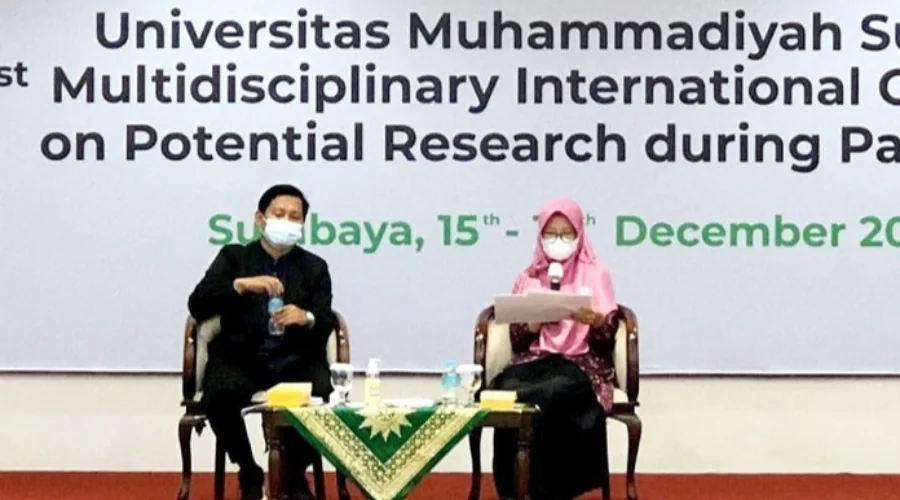
- 20 May
- 2021
Foto Arin Setyowati dalam MICon 2021
UM Surabaya Expert: The Importance of Integrating Commercial Finance and Social Projects
Muhammadiyah University of Surabaya held the 1st International Multidisciplinary Conference on Potential Research (MiCon) on 15-16 December 2021. Arin Setyowati Lecturer in the Syari'ah Banking Study Program FAI UM Surabaya became one of the participants at this conference and presented the results of his research on integrating commercial and social finance Islam, a case study of Cash Waqf Linked Sukuk (CWLS) in Indonesia.
This young lecturer examines the role of related cash waqf sukuk as an instrument of integration of sharia commercial finance and sharia social finance in economic development in Indonesia. This research departs from the potential of CWLS for the macroeconomic development sector in Indonesia and the microeconomic sector for the welfare of the people.
"CWLS mixes 2 social and commercial instruments, which can be used as an alternative to financing state projects for economic inclusion, for example the development of the halal industrial area," said Arin, a young lecturer alumnus of Gadjah Mada University.
Arin added that a number of studies have shown that waqf combined with sukuk can be a panacea in solving the humanitarian funding gap.
At this conference Arin also explained some of the goals of CWLS, namely making it easier for people to take money that is safe and productive, developing innovation in finance and social investment in Indonesia, encouraging inclusive and sustainable economic growth, supporting the national waqf movement, assisting the development of social investment and productive waqf in Indonesia and strengthen the ecosystem of waqf money in Indonesia.
"Through this CWLS workflow, it becomes a prototype of the integration of sharia commercial finance and social finance which can become an inclusive economy and provide roles and space for the poor to participate in the real sector which is a humane economic process under the Islamic economy," he said.
At the end of the event, Arin hopes that through this conference it will be a means of upgrading and accelerating UM Surabaya researchers in publishing research results to the international realm, especially in dialogue on multidisciplinary research findings in providing national development solutions.
"With this CWLS it becomes part of alternative funding efforts for state projects that have an impact on both commercial and social finance," he concluded.










(0) Comments